When to Replace Your Brakes: 4 symptoms to watch for
When it comes to knowing when to replace brakes, it’s important to strike a balance between getting the most mileage out of them and replacing them before they wear down too much. After all, brake components can be expensive, and no one wants to have to replace them more often than necessary. However, letting your brakes wear all the way down is also not ideal. Doing so can cause damage to other parts of the braking system and potentially lead to an accident.
So how can you tell when it’s time to replace your brakes, especially when you're at the track regularly? The best way is to have them inspected by a qualified mechanic on a regular basis. They will be able to spot signs of wear and tear and advise you on when it’s time for a replacement. By following their advice, you can help ensure that your brakes are always in good working condition—and avoid costly repairs down the line. But in lieu of a mechanic at the moment, we'll go over some symptoms and things to watch out for.
If you notice these symptoms, it may be time to replace certain brake components or your brake system as a whole
1. A Metallic, Grinding Noise
When your brakes are in good condition, the pads compress the rotor and stop the wheels from rotating. But as the pads wear down, they become thinner and eventually the metal ridges on the pad come into contact with the rotor. The result is a grinding noise that can be quite alarming.
Fortunately, it's easy to replace brake pads and avoid further damage to your rotors. So if you hear a metallic grinding noise when you apply your brakes, be sure to have them checked as soon as possible.
2. A Squealing Sound
The next time you hear your brakes squealing, don't panic! It's actually a very common problem that can be easily fixed. The squealing sound is caused by vibrating metal rotors, drums, or brake pad plates. When the brake pads wear down, they no longer make full contact with the rotors or drums, causing them to vibrate. In most cases, the squealing noise can be remedied by simply replacing the brake pads. However, if the rotors or drums are damaged, they may need to be replaced as well. If you're not sure what's causing the squealing noise, check it out yourself (if you're experienced and qualified) or take your car to a qualified mechanic for a diagnosis.
3. A Clicking Sound When You Release Your Brakes
If you're driving and hear a clicking noise coming from your brakes, it's important to take note. This may be an indication that brake components are moving around when they shouldn't be, which can be caused by loose or broken parts. In either case, it's essential to have the brakes checked as soon as possible. Anti-rattle clasps are designed to secure your brake pads in place, and over time the product these spring clips are made from can break off. If you're experiencing this problem, it's likely that you'll need to replace the entire set of brake pads. Thankfully, this is a relatively straightforward process that can be completed fairly quickly and easily.
4. Pulling To One Side When Braking
When you brake and your car pulls to one side, it is an indication that your brakes are not functioning properly. There are a number of reasons why this may be happening, but the most common cause is an uneven distribution of brakes. If your brakes are gripping more on one side than the other, it will cause your car to slowly drift upon brake application. Another possibility is that the brake pads on one side may be worn down more than the other.
This can also be caused by your calipers becoming corroded and not moving as they should, or a brake fluid leak.
Shop all performance brake systems, parts, and accessories
How much does it cost to replace your brakes?
When it comes down to how much it costs to replace brakes, know that it’s always an investment, and it’s worth it to invest in high-quality brake components – Especially when you’re competing regularly. If you perform DIY brake replacement, it can cost up to an estimated range of $150 to $250 per axle. It depends on what needs to be replaced. If you have any questions, contact us at 1-888-MAPerformance and we will be happy to assist you.
How often should I replace my brakes?
Your brakes are one of the most important safety features on your car, so it's important to keep them in good working order. That means replacing your brake pads and rotors on a regular basis. Brake pads should be replaced every 10,000 to 20,000 miles to minimize wear. Rotors, which are the large metal discs that your brake pads clamp down on to stop the wheels from turning, should be replaced between 50,000 and 70,000 miles. Replacing your brake pads and rotors more frequently than these recommended intervals may not provide any benefits, and it will just end up costing you more money. So when you’re wondering how often to replace brakes, be sure to follow these guidelines to keep your brakes in peak condition. It also varies by what you do with your car. You may need to replace your brake components sooner if you’re competing at the track and getting performance use out of your car.
Whether you’re looking for new brake pads or a complete brake upgrade, MAPerformance can help you get back on the road with confidence.

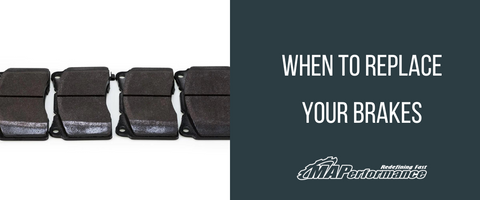
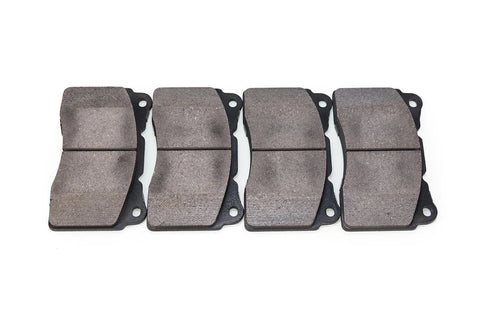
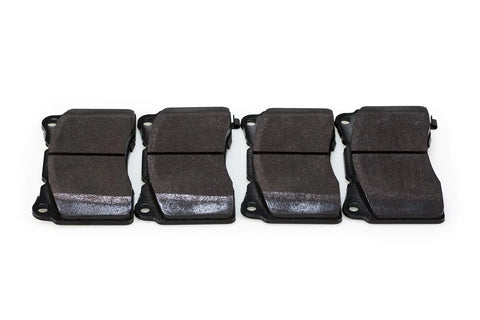
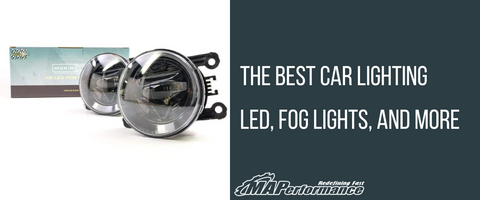
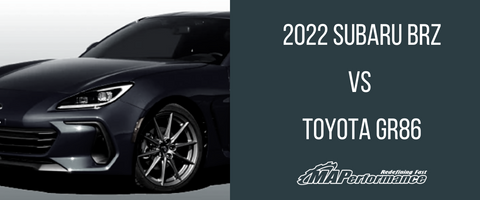
Comments (0)
There are no comments for this article. Be the first one to leave a message!